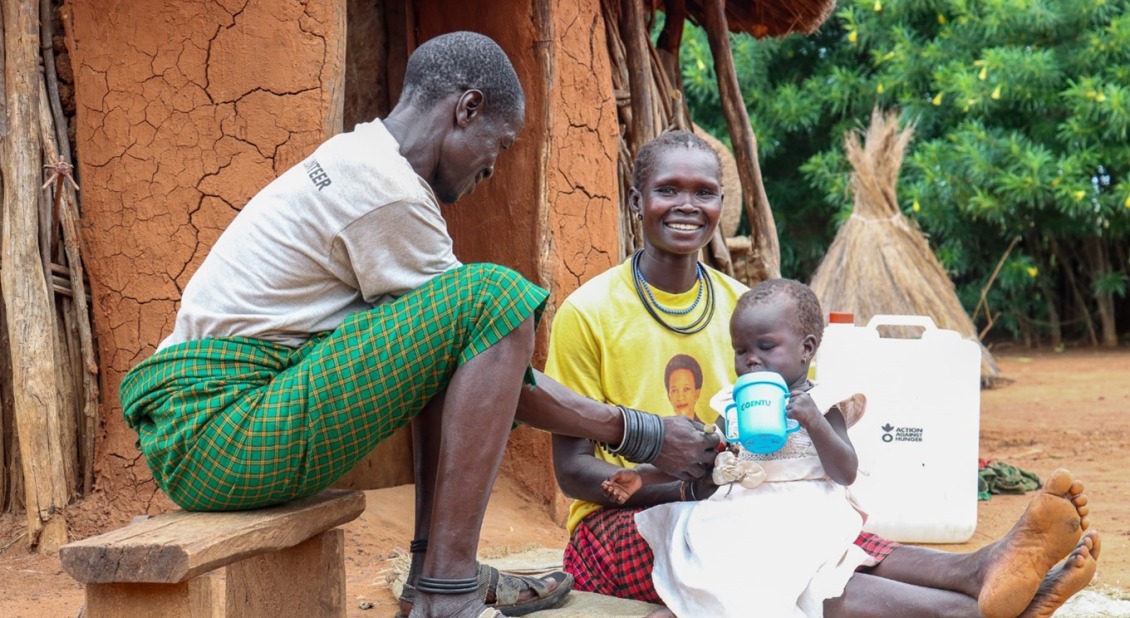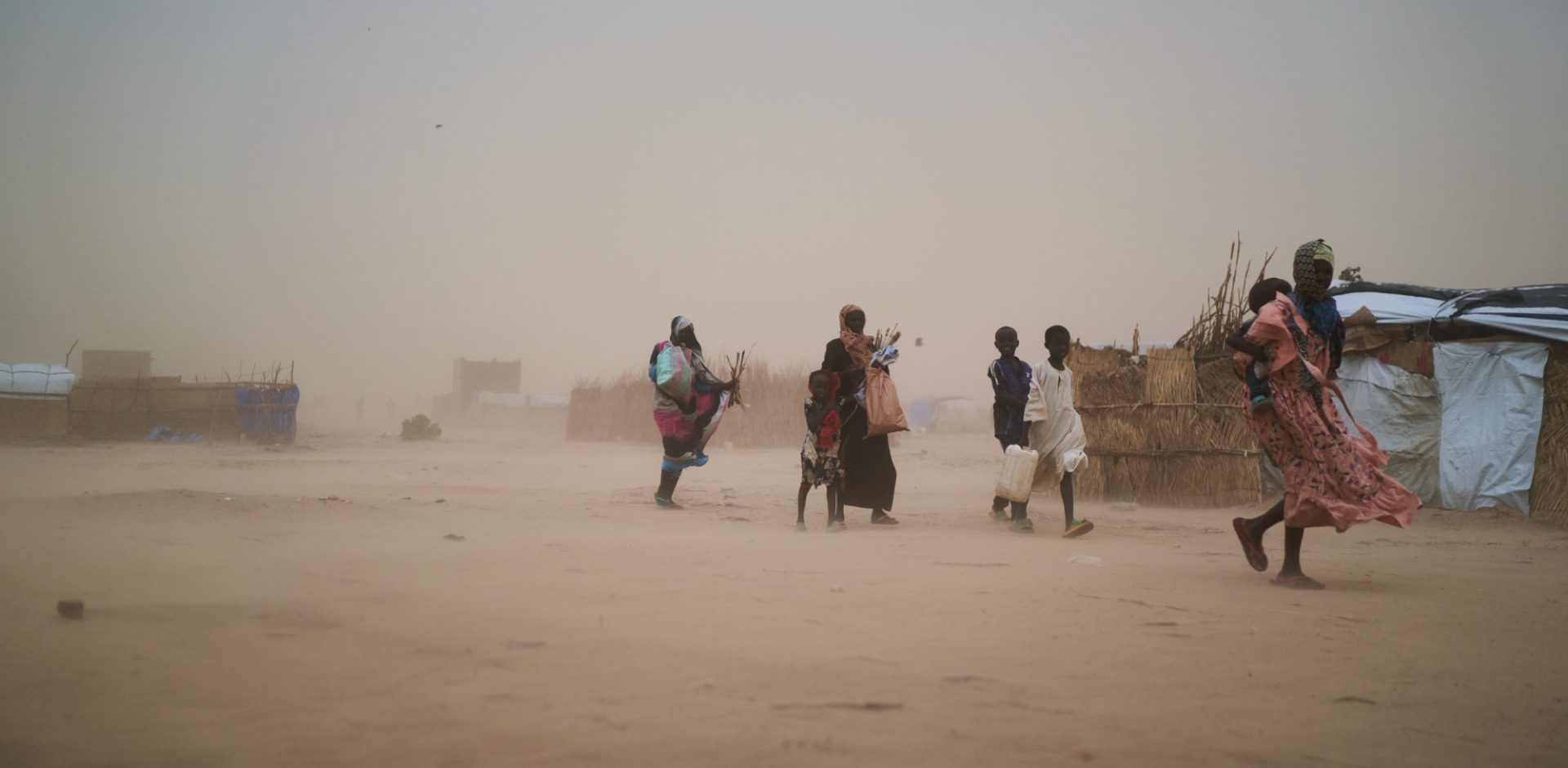
FAMINE IN SUDAN
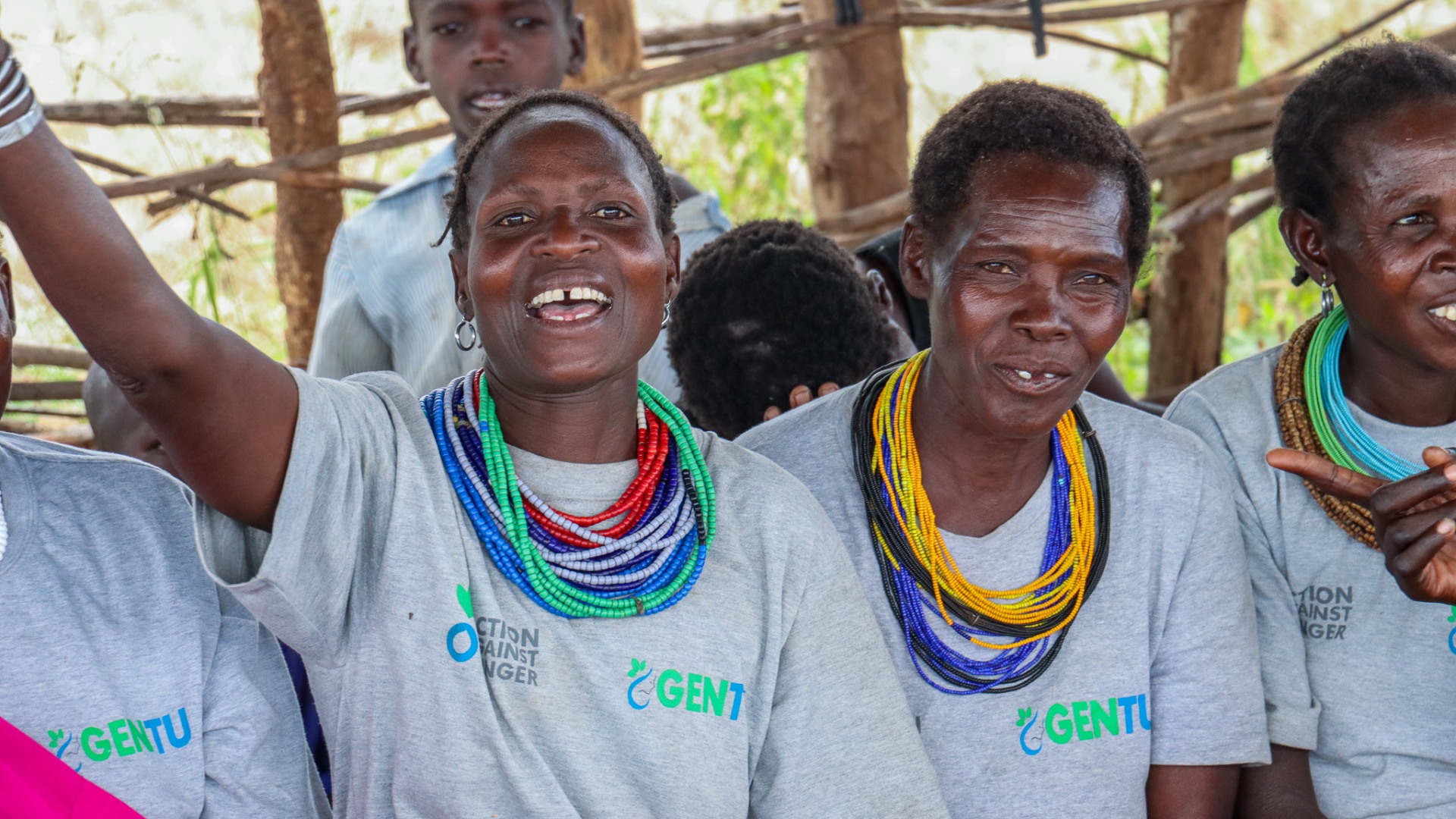
The Karamoja region, located in Northeast Uganda, is characterized by its remoteness and semi-arid landscape dotted with hills, mountains and valleys. Moroto, its largest town, is located 540 kilometres from the capital city, and requires a full day of travel by road.
According to The Integrated Food Security Phase Classification (IPC), Karamoja is the most vulnerable region in Uganda, with a large portion of its population facing acute malnutrition. However, significant strides are being made to improve nutrition through grassroots initiatives.
At the heart of this initiative is Losike Suzan, a 32-year-old mother of two who has recently taken up the role of a Village Health Team Member. Losike has been busy the past few days, visiting homesteads in her village to remind families about the upcoming community training sessions she will facilitate.
“I have been trained on improving nutrition in my village, and now it’s my turn to pass on this knowledge, and end malnutrition in my village” she says proudly.
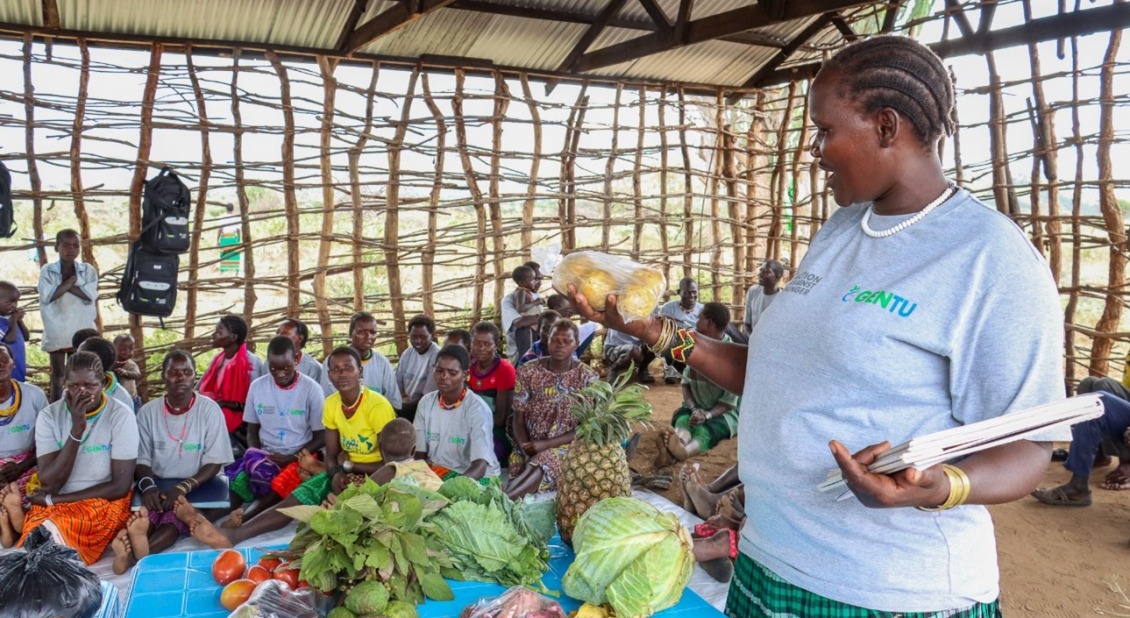
Losike is part of a group of community members who underwent practical training on different aspects of nutrition under the GENTU Project. GENTU—Gender Equitable Nutrition in Tanzania and Uganda—is a five-year project funded by Global Affairs Canada and implemented by Action Against Hunger Canada. The project aims to improve and sustain nutrition outcomes for the most vulnerable groups through comprehensive strategies both at local and national levels.
As a Village Health Team Member, Losike trains community members and regularly visits their homes to ensure they implement what they’ve learned. Trained participants become Care Group Volunteers (CGVs), who, in turn, recruit and educate other community members, expanding the initiative’s reach.
On the day of the training, Losike arrives early and sets up her demonstration table with the help of volunteers. The session, held in a makeshift open hall, brings together at least 30 community members. There is an air of excitement, and without any coordination, the community members break out in song and dance. After a few introductions, Losike begins her training.
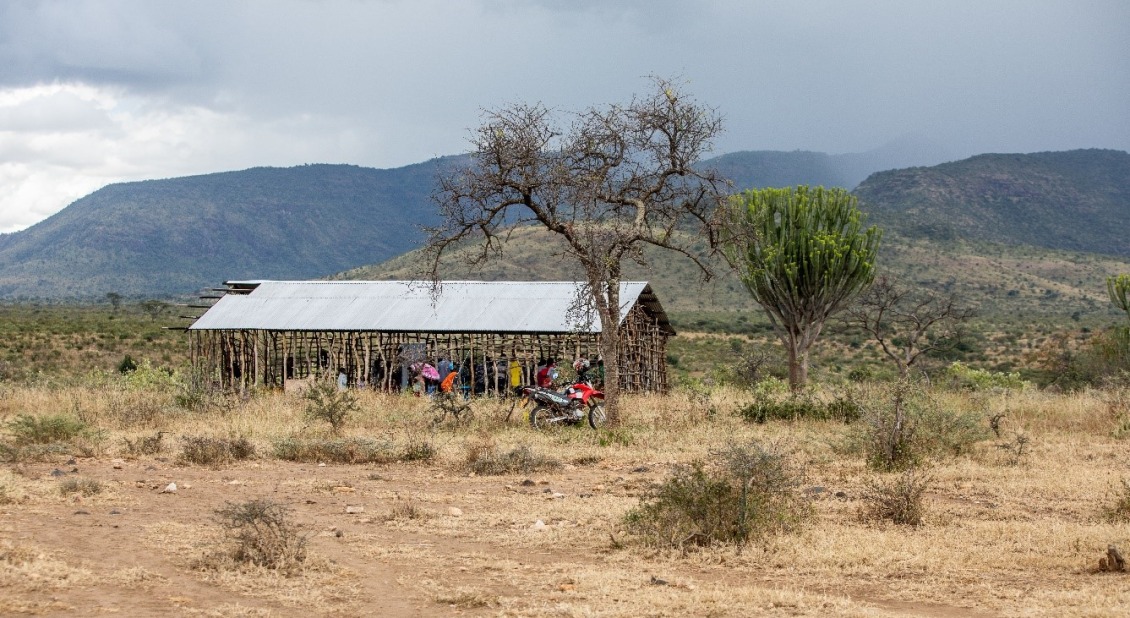
The session, which lasts close to an hour, trains community members on food choices—which foods to use based on nutritional value, how best to prepare food, and how to properly serve the food. Community members are also trained on how best to combine foods for maximum nutritional value and which foods are required to prevent nutrient deficiency diseases like anemia, kwashiorkor, and scurvy.
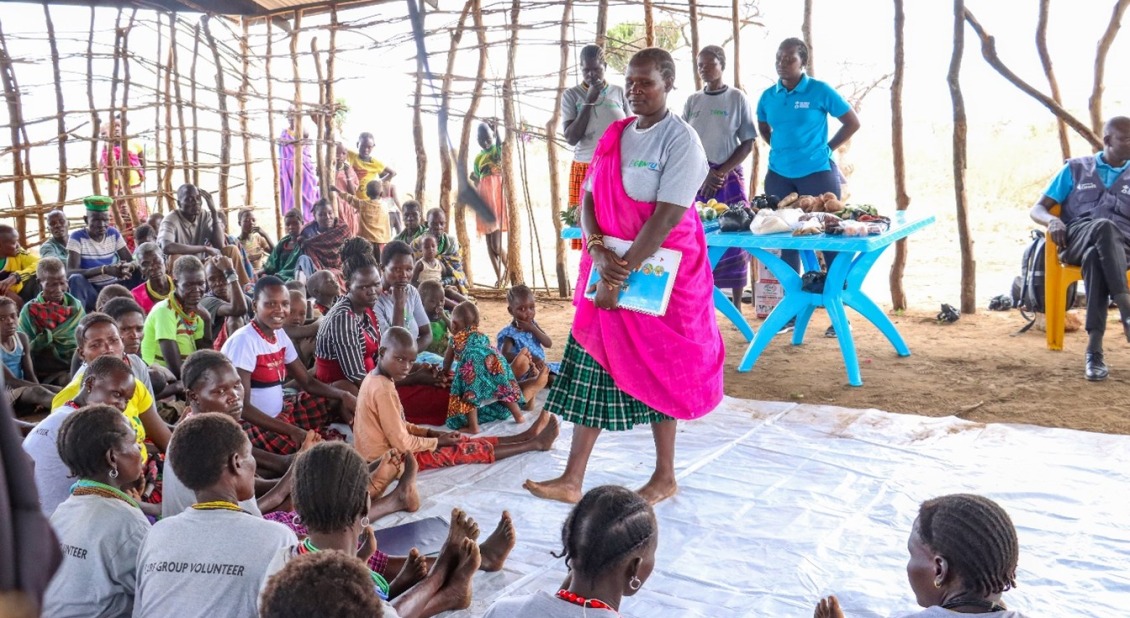
Mr. Peter Kutosi, a nutrition officer under the GENTU project, observes that this grassroots training approach is highly effective in remote areas, as it relies on community members themselves.
“We currently have 10 care groups in the Loputuk subcounty, and we are optimistic about reaching more people through this approach,” he notes.
In Nabilatuk District, some 87 kilometres away, 17-year-old Patience Namuju leads a training session at Lolachat Seed Secondary School’s Health & Nutrition club. With 32 active members, the club educates students on the nutritional benefits of foods and the cultivation of food crops like eggplant, vegetables, and cassava.
“The school has provided us with a garden for growing vegetables, cassava, and eggplant, which supplements our school meals,” she explains.
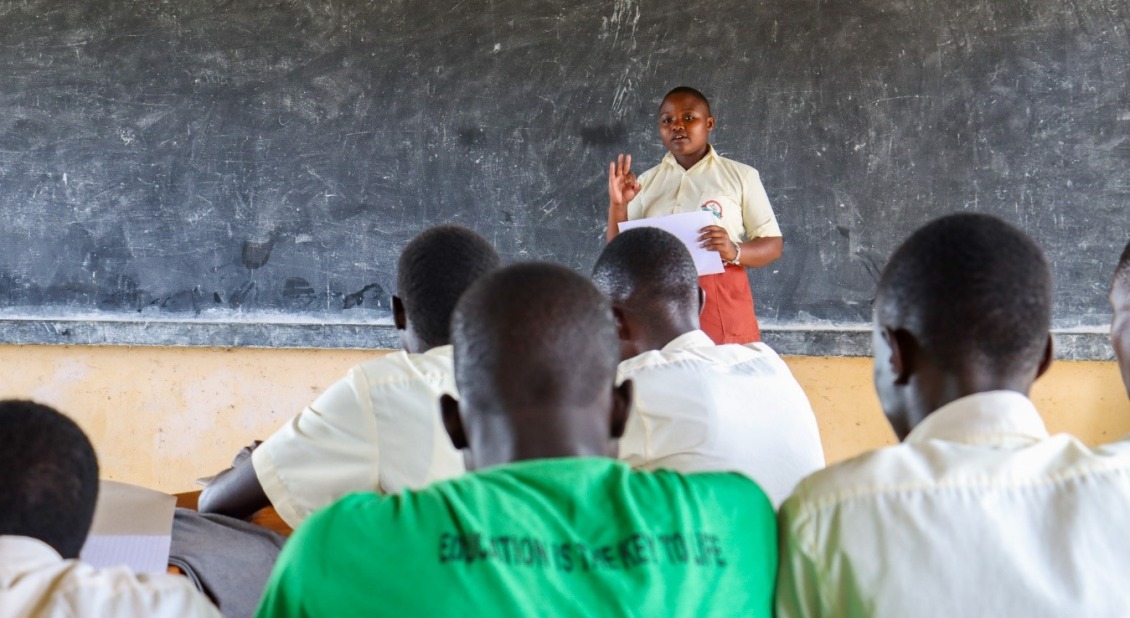
The Deputy Headteacher, one of the club’s patrons, notes that the club’s ultimate goal is for its members to share knowledge and training with fellow students, their families, and community members. They also hope to increase the size of their gardens to grow more nutritious foods for school use and sell the rest to generate income for the club.
Since 2023, GENTU has established 11 health and nutrition clubs in secondary schools across Karamoja, and 32 clubs are in the process of being established in primary schools.
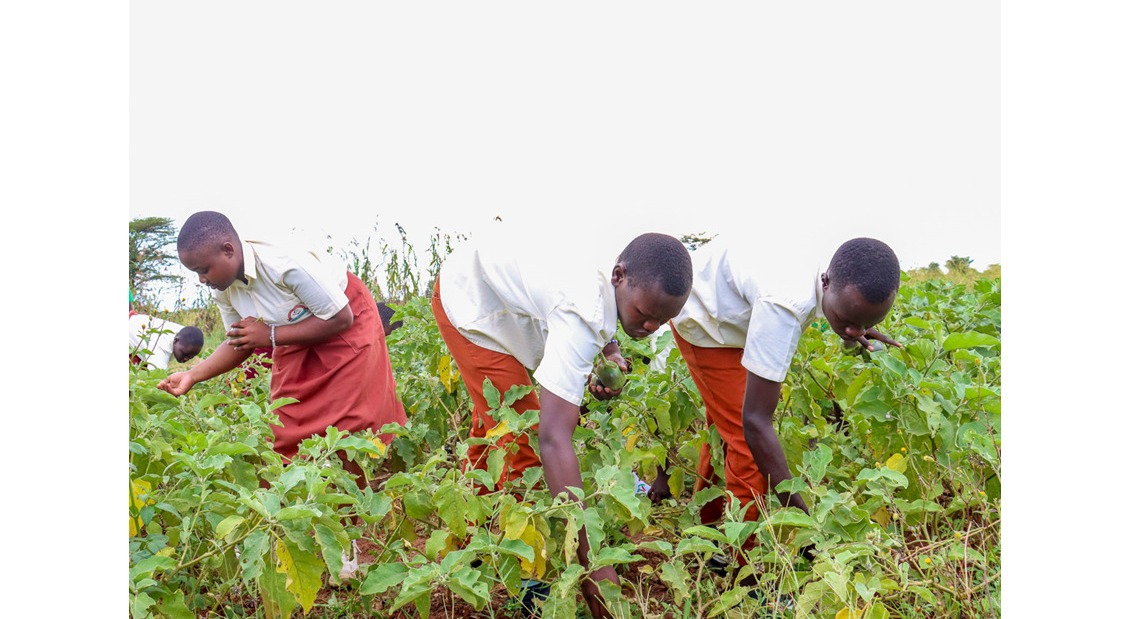
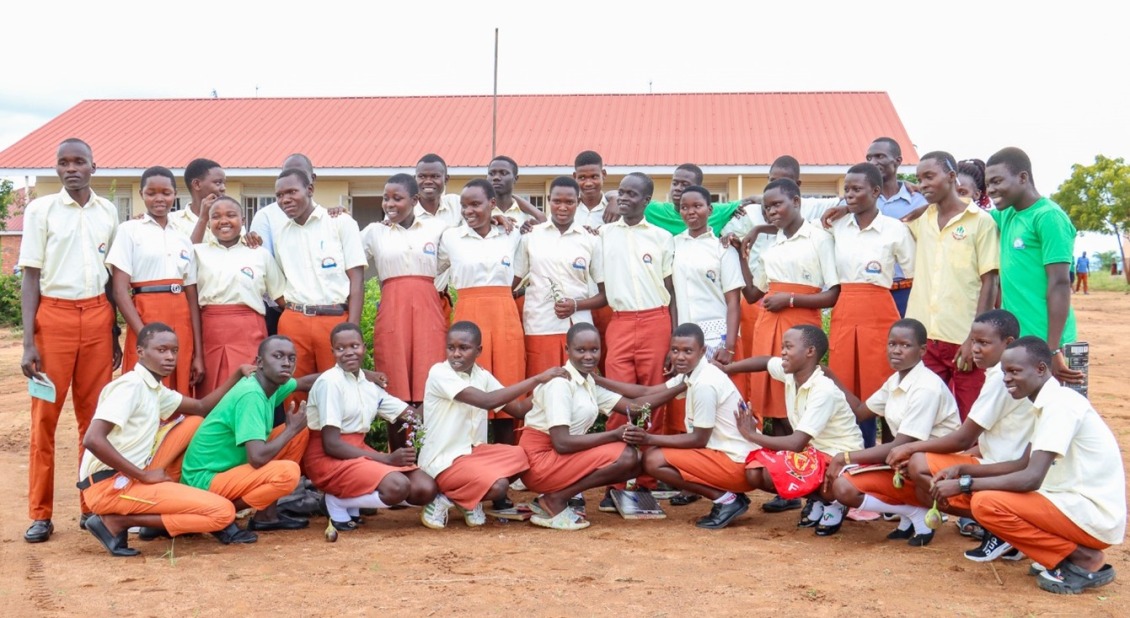
Mr. Lotee Philip, the medical officer in charge of Naduget Health Center in Moroto District, confirms that since GENTU started its grassroots initiatives on nutrition, there has been a noticeable decline in the reported number of patients with severe acute malnutrition and expectant mothers with anemia, which is common in the region.
“Before this intervention, we used to handle several cases of expectant women with anemia or anemia symptoms. Last month, we only had two reported cases of anemia, and the trend seems to be the same for this month,” he says.
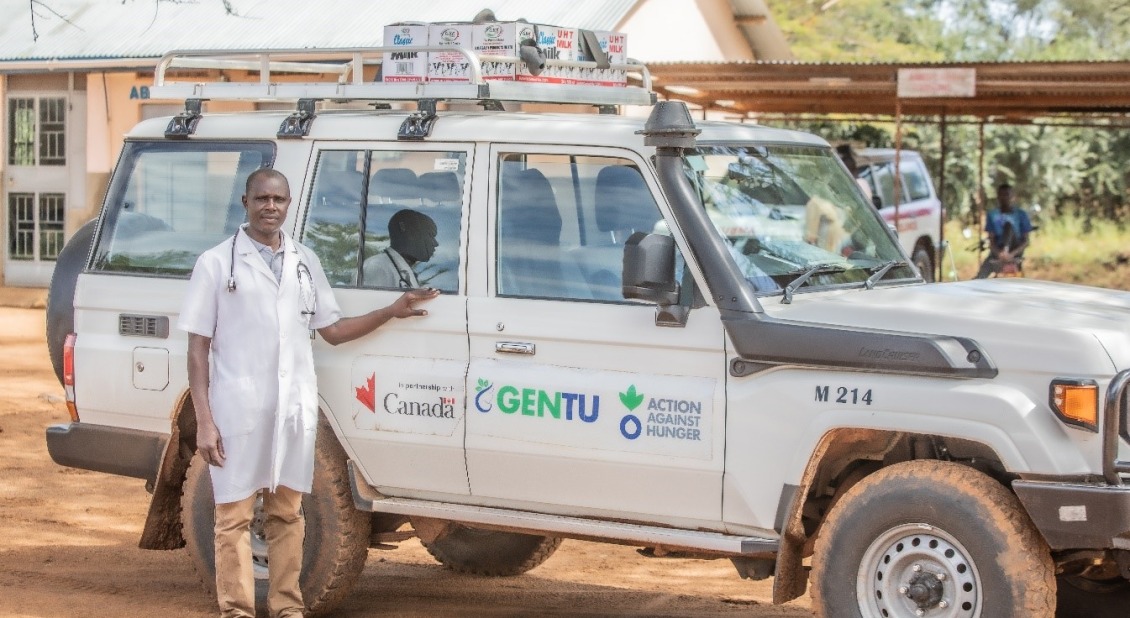
Through grassroots community empowerment and educational clubs, the GENTU project is creating a sustainable platform to enhance nutrition in Karamoja. Not only is the initiative fostering healthier communities, but it’s also paving the way for a better quality of life in the region.
